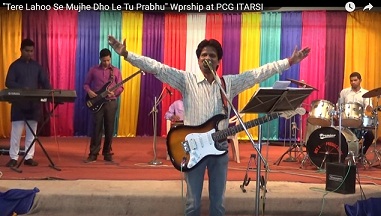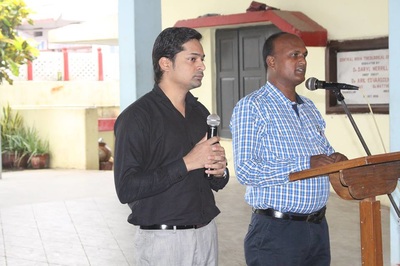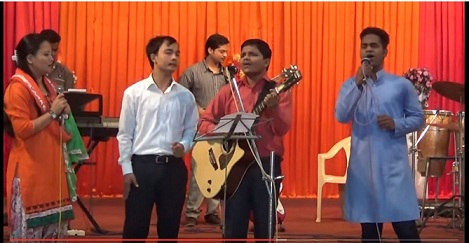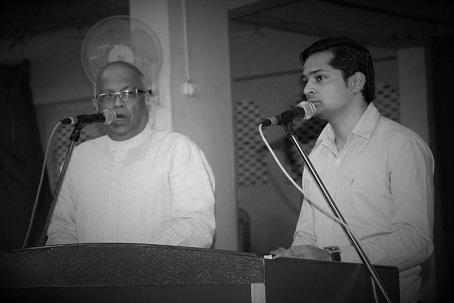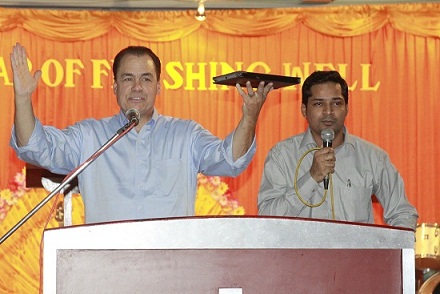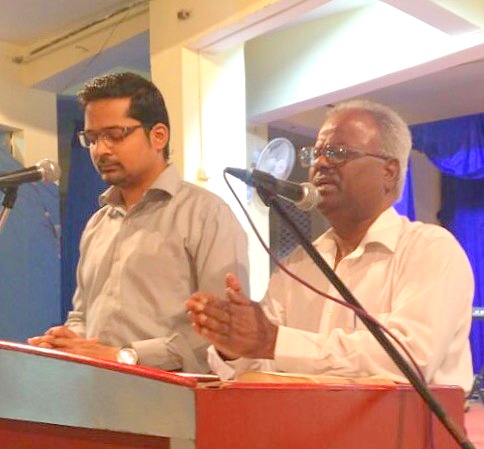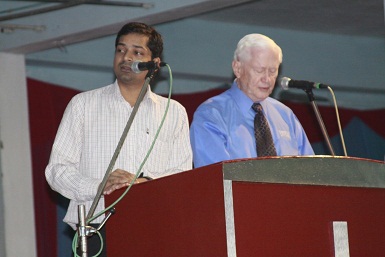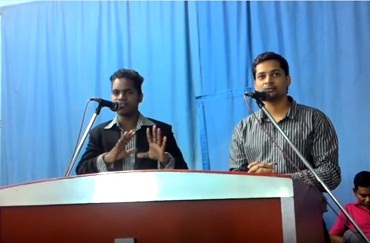The Sikh community is found all over the world. The community is famous for its enterprise and creativity. It turns everything to profit. Ludhiana in Punjab is known for garment manufacturing. It makes woolens, shirts and fabrics for export. Leather and sports goods are also made in Punjab. Besides the industrial entrepreneurs, Sikhs are also skilled agriculturists. The credit of the success of Green Revolution in the late sixties and seventies goes to Punjab. The state still remains the bread-basket of India. Wheat, rice, pulses, sugarcane are just some of the crops grown here. In many ways, Punjab is known all over India as a potential economic Superpower. Sikhism was founded by Guru Nanak. Guru Granth Sahib is the sacred work, a holy book like Bible for Christians and Quran for Muslims. Historically, Sikhism emerged out of the injustices done to them by the Mughal emperor, Aurangzeb. Anandpur Sahib is the pilgrim centre of Sikhs which took its present form in 1699. It is here that the tenth Guru, Govind Singh urged Sikhs to become warrior-saints against their Muslim conquerors. He said that the Sikhs are Khalsa – the pure ones.
Describing the incident of Khalsa faith Anandpur Sahib, Fernandes observes:
Guru Govind Singh's view of the religion had been irrevocably shaped at the age of nine, when his father, the ninth Guru Tej Bahadur, was executed in Delhi by the Mughal Emperor, Ahadur had gone to plead the case of the same and had asked for his intervention after facing of Hinduism to Islam. The Emperor also advised to renounce his faith or face death. He chose death. He was beheaded on November 11, 1675.
The site of his death is marked by a Gurudwara on Old Delhi’s fort his body could be quartered, a devotee head and bore it on horseback to the ated at Anandpur Sahib.
The death of Tej Bahadur Singh inspired Guru Govind Singh to pledge the Sikhs to prepare themselves to defend their faith unto death if necessary. The Khalsa faith thus is born of the desire for a distinct Sikh identity.
The Sikh identity or the identity of Khalsa consists of five ‘k's',
kes; they would keep their hair and beard uncut; kangha: they would wear a comb in their hair, kachha, they would wear an undergarment shorts; kara: they would wear a steel bracelet on their right wrist; and kirpan: they would be armed all times with a small sword.
Alcohol, tobacco and meat from animals who bled on death were prohibited. The molestation of Muslim women was prohibited. Guru Govind Singh's formation of Khalsa panth was a kind of fundamentalism in religious frame. He waged battles, built fortifications to protect his domain, developed arsenals of weapons for the holy cause and ma clear in writings that he meant to defend the faith of Sikhism with deed as well as word.
Sikh fundamentalism first fascinated the West in 1978, when the blazing preacher Jarnail Singh Bhindranwale allegedly led a march to break up a congregation of the Sikh Nirankari movement (from Punjabi nirankar, formless, reflecting the movement’s belief in the nature of God), which orthodox Sikhs considered sacrilegious. Bhindranwale, like other fundamentalists, stressed the need for orthodoxy to a sacred text (the Adi Granth) and for the creation of a Sikh state governed according to sacred law. But, as in the occasion of the Protestants of Northern Ireland, such fundamentalist concerns were subordinated to nationalistic ones.
Sikh fundamentalists of the late 20th and early 21st centuries sought to fashion an independent Sikh state in the Indian province of Punjab. Although images of holy war permeated their rhetoric, their chief adversary was the Hindu state of India rather than secularism per se. Sikh fundamentalism was thus principally a nationalistic separatist movement.
In June 1984, Indian army captured the Golden Temple in Amritsar and killed Bhindranwale and hundreds of his armed followers. The homicide, as well as what Sikhs considered the defilement of their holiest shrine, enraged the Sikh civic and led to the murder of Indira Gandhi, then India’s prime minister, by two of her Sikh bodyguards in October 1984. This in turn ignited rebellions in which Hindu mobs killed more than 2,000 Sikhs . By the early 1990s, the central government had succeeded in defeating Sikh militancy in India.
The Sikhs by now had become antagonistically aggressive towards opposing faiths and resorted to dharam yudh or the battle of faith. This proves that they are historically fundamentalists.
Image Source: http://static.dnaindia.com/sites/default/files/2015/10/22/387681-pti-sikh-protest-in-jalandhar.png

